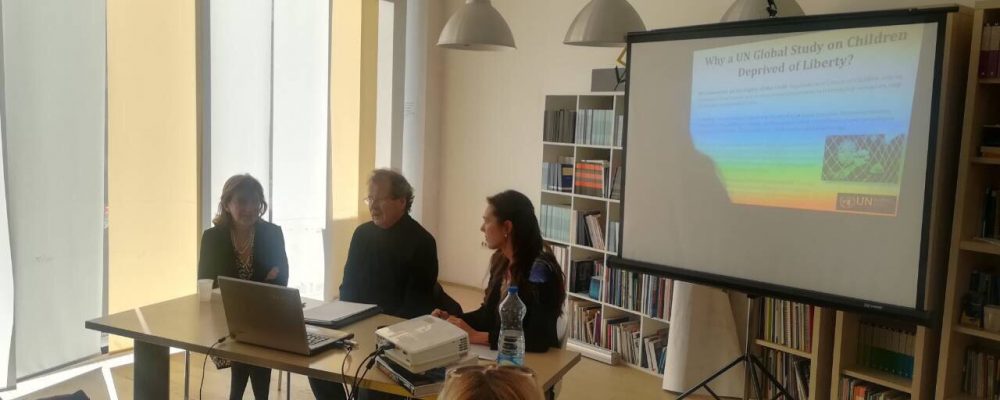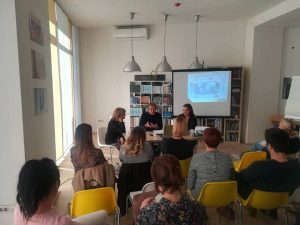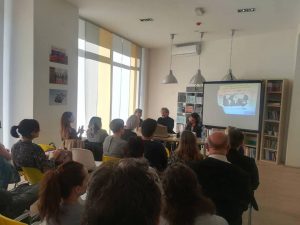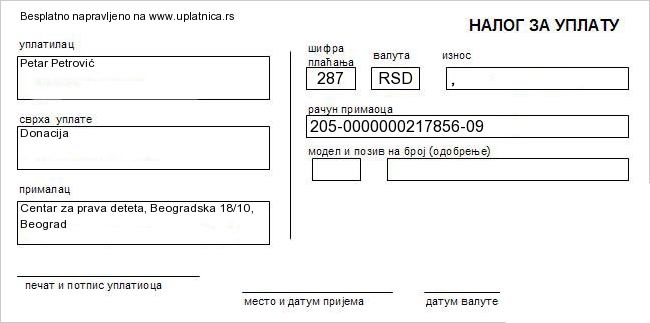
The Child Rights Centre had a great honour to host a consultative meeting with Professor Manfred Nowak on the process of development and future implementation of the United Nations Global Study on Children Deprived of Liberty in the Human Rights House in Belgrade on the 5th October 2018, in collaboration and with support of the Belgrade Centre for Human Rights.
Professor Manfred Nowak holds a Professorship of International Human Rights at the University of Vienna, where he is the Scientific Director of the Vienna Master of Arts in Human Rights. Professor Nowak also teaches International Law and Human Rights at various universities, such as Utrecht, Lund, Stanford and the Graduate Institute in Geneva, and has published more than 600 academic articles and books.
Professor Nowak is currently the Independent Expert leading the United Nations Global Study on Children Deprived of Liberty. He carries out this function in close cooperation with the European Inter-University Center for Human Rights and Democratisation in Venice, where he is Secretary General, and partner universities of the Global Campus of Human Rights, as well as with the Ludwig Boltzmann Institute for Human Rights in Vienna, which he founded and co-directs.
In past, Professor Nowak has also carried out various important expert functions for the United Nations, the Council of Europe, the European Union and other inter-governmental organizations. Most importantly, he served as United Nations Special Rapporteur on Torture (2004 to 2010), United Nations Expert on Enforced Disappearances (1993 to 2006), as Vice-Chairperson of the Management Board of the European Union Agency for Fundamental Rights in Vienna (2012-2017), and as one of eight international judges in the Human Rights Chamber for Bosnia and Herzegovina in Sarajevo (1996 to 2003).
Children deprived of liberty still remain an invisible and forgotten group of children who are often placed in inhuman conditions and in adult facilities – in clear violation of their human rights. This has destructive impact on their physical and mental development, and on their ability to lead healthy and constructive lives in society.


The main objectives of the Global Study are as follows:
- To assess the magnitude of this phenomenon, including the number of children deprived of liberty (disaggregated by age, gender and nationality), as well as the reasons invoked, the root-causes, type and length of deprivation of liberty and places of detention;
- To document good practices and experiences and to capture the views and experiences of children to inform the Global Study’s recommendations;
- To raise awareness and promote a change in stigmatizing attitudes and behaviour towards children at risk of arrest or detention as well as children who are deprived of liberty;
- To provide recommendations for law, policy and practice to safeguard the rights of children concerned, and prevent the detention of children and significantly reduce the number of children deprived of liberty through effective non-custodial alternatives guided by the best interests of the child.
The key focus areas of the Global Study will be the deprivation of liberty of:
- Children deprived of liberty within the administration of justice
- Children deprived of liberty for migration-related reasons
- Children living in places of detention with their parents
- Children deprived of liberty in institutions
- Children deprived of liberty in the context of armed conflict
- Children deprived of liberty on national security grounds.
This event gathered experts of a number of prominent human rights civil society organisations in Serbia as well as representatives of international organisations and academia. Professor Nowak introduced the participants to the process of development of the Global study which was followed by a discussion on what is expected from state institutions and civil society sector in Serbia in the whole process that lies ahead.
